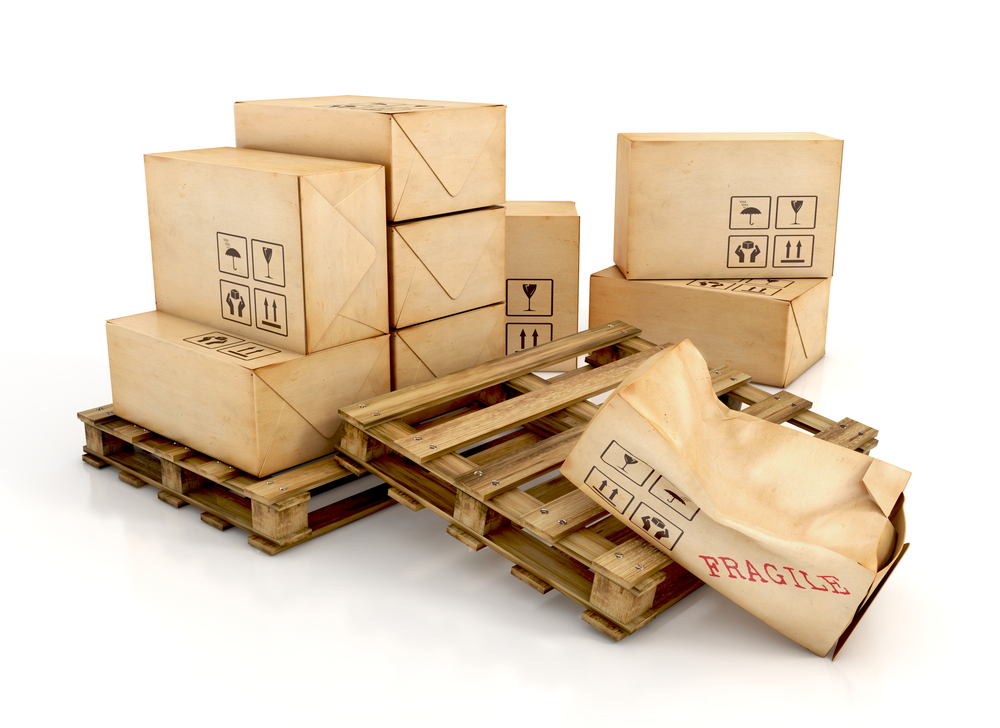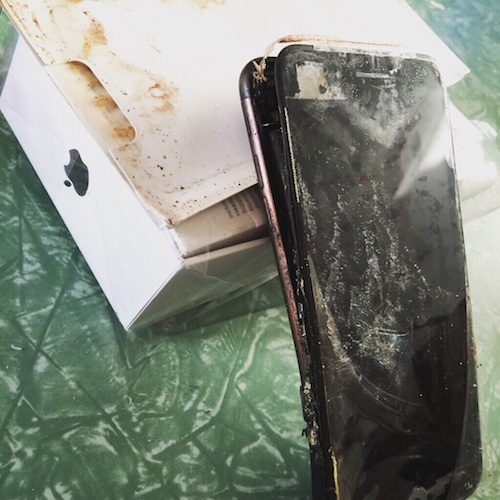
7 Tips to Ensure Your Freight Claim Gets Paid-In-Full
From the bigger stores like Amazon to the more niche markets of Etsy, more and more consumers experience the satisfaction of finding something wonderful online and having it delivered straight to their home or office. With this new convenience, however, comes new potential headaches: freight claims.
The Headache of Transit Damage
 Reddit user kroopthesnoop posted about one such headache when they received their shiny new iPhone 7: transit damage. You can view the original images here.
Reddit user kroopthesnoop posted about one such headache when they received their shiny new iPhone 7: transit damage. You can view the original images here.
Kroopthesnoop eventually received a replacement iPhone, and all is right in the world. But his story illustrates the importance of working with companies to report shipping damage at the time your order is received.
"Something happened between the factory and delivery,” is all the phone’s owner had to say. We agree. That 'something' is transit damage.
Statistics show that approximately 1-2% of freight is damaged during transit. The Internet is littered with horror stories of people receiving damaged packages. Check out this video of a major shipping carrier, throwing packages around and kicking them with his feet.
What can you do to protect your investments from freight damage? If you have to make a freight claim, how can you be assured that your claim will be paid in full, 100%?
OCC Outdoors' 7-Step Guide to a Headache-Free Freight Claim
Only the freight companies can know exactly when and where a freight is damaged. The best thing you can do as a consumer is protect your investment. We put together a handy guide to help mitigate any potential headache from transit damage:
1) Inspect every item in your order before signing anything and unloading it.
Note any damage of any kind on the driver's Bill of Lading. You can be specific (e.g., “3 pieces bent”) or simply write "DAMAGED".
2) Determine what exactly is stolen, missing or damaged.
Don’t be intimidated by the driver and do not allow the driver to talk you out of inspecting your shipment before signing. The driver may claim he or she is in a hurry for the next route, but you have a right to record all details as necessary.
3) Take photos of the shipment and damage. Have the shipper take photos as well.
We cannot repeat #2 & #3 enough; it's vitally important! Failure to inspect the shipment will result in the carrier refusing to pay for or replace damaged product. (If, however, the driver will not allow you to inspect the shipment, write "POSSIBLE DAMAGE - DRIVER REFUSED INSPECTION" before signing.)
4) Do not refuse a shipment and never discard damaged freight.
If shippers get rid of the freight, you will have no way to verify damage, which means you might not be paid the full freight claim amount. Keep all freight and packages intact if possible.
5) Pay the freight bill as soon as possible.
You are still responsible for payment of goods’ transportation, even if there is damaged, lost or stolen freight. The claim will be processed by an insurance company.
6) Report the damaged/lost freight — the sooner the report, the better!
Try to report damages and shortages to the carrier within five (5) days of receipt of the load.
7) Keep all necessary documents:
These can include, but are not limited to:
+ A copy of the bill of lading
+ A copy of the paid freight bill
+ A copy of the invoice showing the amount paid for the goods
+ A copy of the packing slip
+ A standard claim form or a letter identifying the shipment and claim amount
+ Photos of the damage
And it goes without saying: if you are not the person that will be receiving the shipment, please pass this information to the correct person.
We've already talked about how we help our customers save money with shipping costs. On our end, OCC Outdoors does everything in its power to reduce the chances of transit damage by packing products with expert care and precision. And we're constantly evolving our packing process, continually researching the market and choosing the shippers with the lowest percent of claims.
Once your items are sent to the shipper, however, it's out of our hands. This is where we need our customers to work with us when receiving our products. Freight companies will rarely pay for damaged shipments that are not checked and noted prior to signing. It's worth noting that, as a company policy, OCC Outdoors does not pay for the replacement of items that are damaged in transit.
Still, in our experience, following our those seven tips is the best ways to safeguard your investment and save yourself time, money, and a whole lot of headache!
